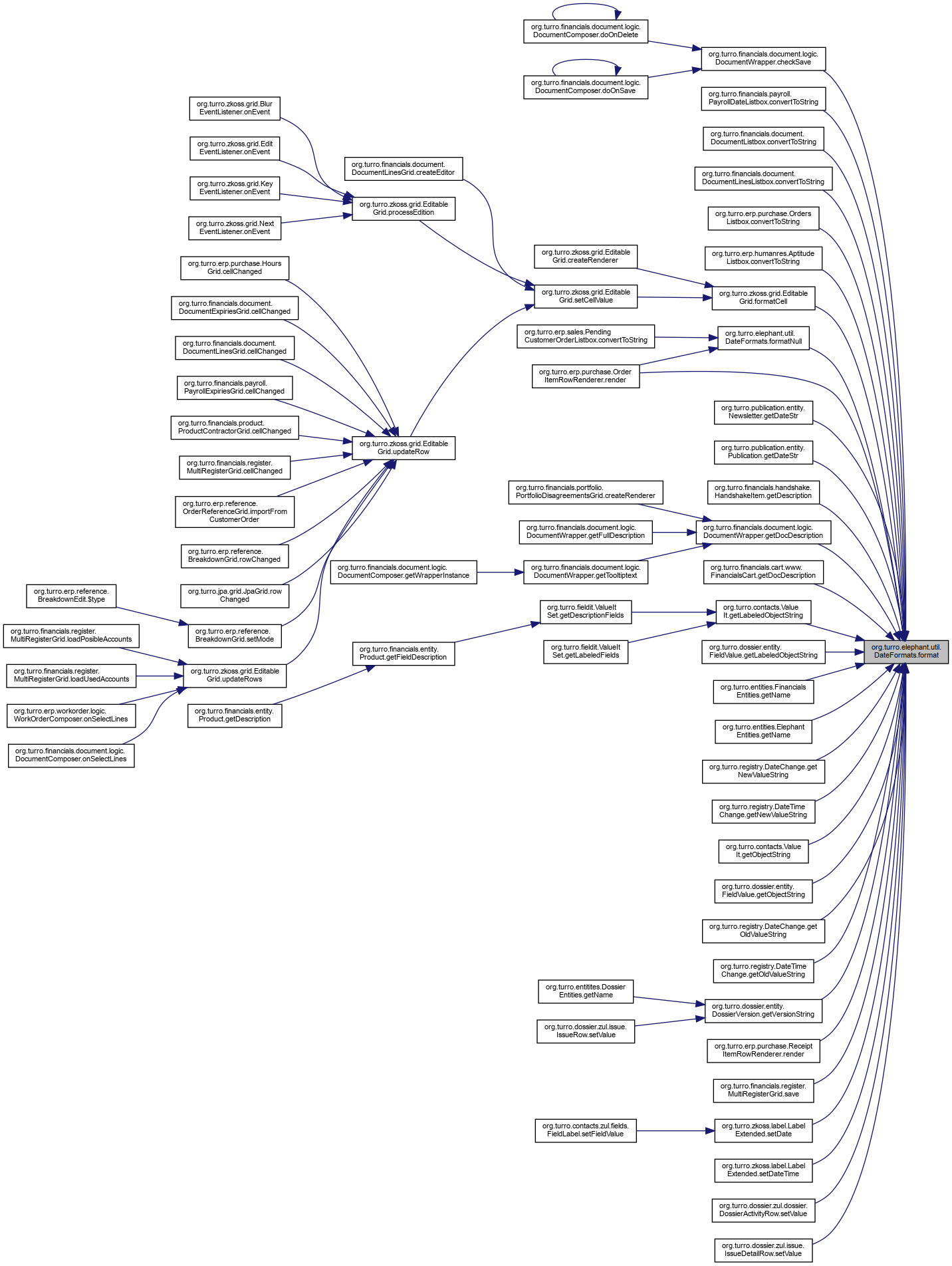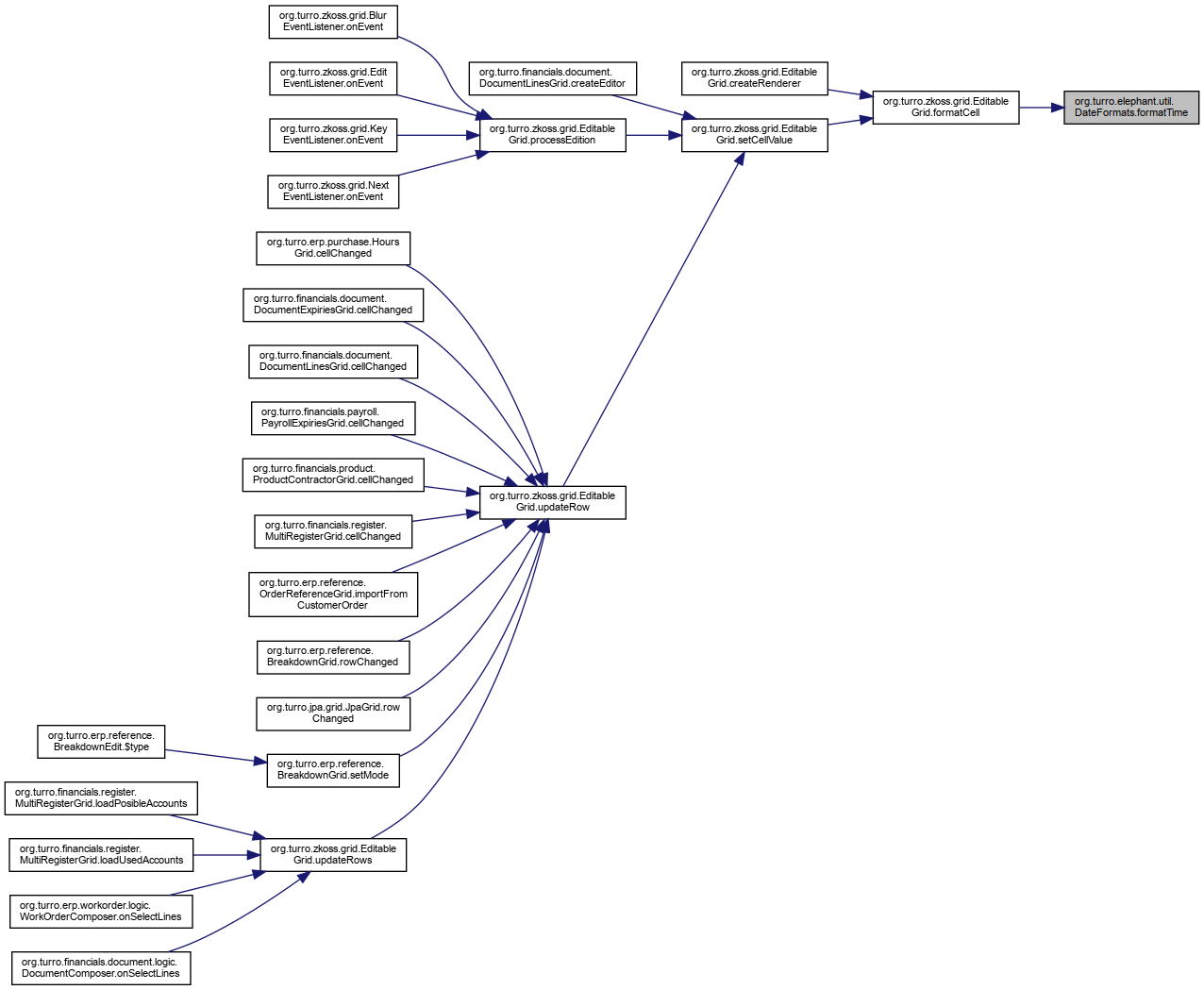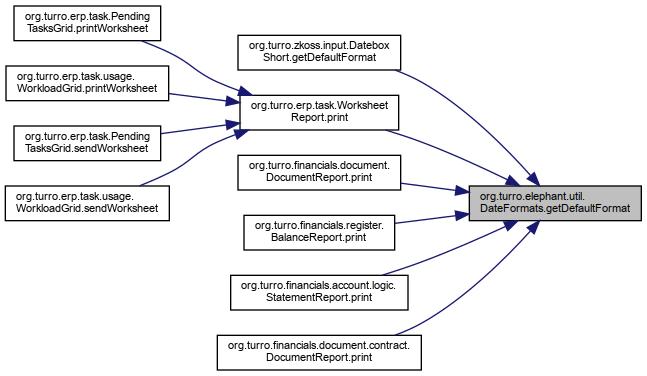- Author
- Lluis Turró Cutiller lluis.nosp@m.@tur.nosp@m.ro.or.nosp@m.g
Definition at line 31 of file DateFormats.java.
◆ format()
| static final String org.turro.elephant.util.DateFormats.format |
( |
Date |
d, |
|
|
boolean |
dateOnly |
|
) |
| |
|
static |
Definition at line 33 of file DateFormats.java.
34 if(d ==
null)
return null;
36 return org.amic.util.date.DateFormats.format(d,
37 DateFormat.SHORT, Application.getUsedLocale());
39 return org.amic.util.date.DateFormats.format(d,
40 DateFormat.SHORT, DateFormat.SHORT, Application.getUsedLocale());
◆ formatNull()
| static String org.turro.elephant.util.DateFormats.formatNull |
( |
Date |
d, |
|
|
boolean |
dateOnly |
|
) |
| |
|
static |
Definition at line 44 of file DateFormats.java.
48 return DateFormats.format(d, dateOnly);
◆ formatTime()
| static String org.turro.elephant.util.DateFormats.formatTime |
( |
Date |
d | ) |
|
|
static |
Definition at line 78 of file DateFormats.java.
82 final DateFormat df = DateFormat.getTimeInstance(
83 DateFormat.SHORT, Application.getUsedLocale());
◆ getDefaultDateTimeFormat()
| static String org.turro.elephant.util.DateFormats.getDefaultDateTimeFormat |
( |
| ) |
|
|
static |
Definition at line 62 of file DateFormats.java.
63 final DateFormat df = DateFormat.getDateTimeInstance(
64 DateFormat.SHORT, DateFormat.SHORT, Application.getUsedLocale());
65 if (df instanceof SimpleDateFormat) {
66 final String fmt = ((SimpleDateFormat)df).toPattern();
67 if (fmt !=
null && !
"M/d/yy h:mm a".equals(fmt))
70 return "yyyy/MM/dd hh:mm a";
◆ getDefaultFormat()
| static String org.turro.elephant.util.DateFormats.getDefaultFormat |
( |
| ) |
|
|
static |
Definition at line 51 of file DateFormats.java.
52 final DateFormat df = DateFormat.getDateInstance(
53 DateFormat.SHORT, Application.getUsedLocale());
54 if (df instanceof SimpleDateFormat) {
55 final String fmt = ((SimpleDateFormat)df).toPattern();
56 if (fmt !=
null && !
"M/d/yy h:mm a".equals(fmt))
◆ monthName()
| static String org.turro.elephant.util.DateFormats.monthName |
( |
Date |
date | ) |
|
|
static |
Definition at line 73 of file DateFormats.java.
74 DateFormatSymbols dfs = DateFormatSymbols.getInstance(Application.getUsedLocale());
75 return dfs.getMonths()[
new CheckDate(date).getMonth() - 1];
The documentation for this class was generated from the following file:









